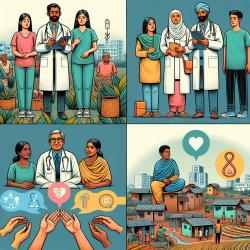The challenges faced by female adolescents and young women (AYW) who are survivors of sexual and gender-based violence (SGBV) in urban low-income communities in Nigeria are profound. Recent research highlights the critical role health providers play in addressing these challenges and suggests ways to enhance their skills and support systems.
Understanding the Barriers
The study conducted in Ibadan and Lagos reveals significant barriers within the primary healthcare system that hinder access to essential services for survivors. These include:
- Lack of counseling services and rehabilitation centers
- Poor referral systems
- Inadequate training for health providers on handling SGBV cases
On the demand side, barriers such as poor knowledge of health-seeking pathways, lack of education, and social support further complicate access to appropriate services.
The Role of Health Providers
Health providers are pivotal in mitigating the consequences of violence among AYW. They serve as critical entry points for survivors seeking diverse support services. According to the World Health Organization (WHO), healthcare providers should:
- Identify survivors and facilitate access to support services
- Prevent recurrence of violence through education and community awareness
- Document cases for advocacy purposes
Tackling the Challenges
The study highlights several strategies to improve the situation:
- Integrated Services: Incorporating comprehensive care at the primary healthcare level can ensure timely treatment for SGBV survivors.
- Training Programs: Upscaling skills and knowledge of healthcare providers is crucial. This includes training on handling SGBV cases sensitively and effectively.
- Youth-Friendly Services: Extending youth-friendly sexual and reproductive health services to include SGBV issues can enhance disclosure and support for survivors.
A Call to Action
The findings underscore the need for a coordinated effort to address these barriers. Health providers must be empowered with the necessary tools and training to offer comprehensive support. Moreover, integrating SGBV services into existing youth-friendly initiatives can significantly impact the well-being of AYW.










